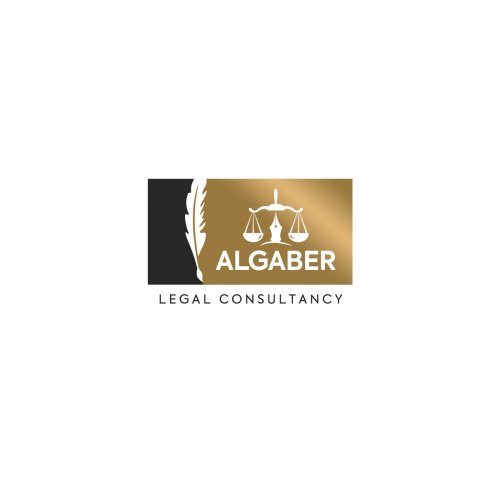Best Personal Injury Lawyers in United Arab Emirates
Share your needs with us, get contacted by law firms.
Free. Takes 2 min.
Or refine your search by selecting a city:
List of the best lawyers in United Arab Emirates

The Black Robe For Legal Consultancy & Debit Collection
1 hour Free ConsultationAbout Personal Injury Law in United Arab Emirates
Personal injury law in the United Arab Emirates (UAE) governs compensations and legal remedies available to individuals who have suffered harm due to the negligence or wrongful actions of others. This area of law covers a wide array of incidents, including road traffic accidents, workplace injuries, medical malpractice, and public liability cases. The legal framework is primarily governed by the UAE Civil Code and relevant statutory provisions, ensuring that victims can seek compensation for their injuries, suffering, and related expenses.
Why You May Need a Lawyer
Personal injury cases can often be complex and challenging to navigate without professional legal help. Engaging a lawyer can be crucial in the following situations:
- Serious or Permanent Injuries: If you've sustained significant injuries, a lawyer can help evaluate the long-term impacts and secure the appropriate compensation.
- Complex Liability Issues: Determining liability in accidents can be complicated, especially in multi-party incidents.
- Medical Malpractice: Proving negligence or misconduct in medical procedures requires legal expertise.
- Insurance Negotiations: Lawyers can ensure that insurance companies do not underpay claims.
- Legal Representation: If your case goes to court, a lawyer's advocacy skills can be invaluable.
Local Laws Overview
In the UAE, personal injury claims are generally rooted in the following legal aspects:
- Negligence Principle: Affected parties must prove that the injury suffered was due to the negligence of another party.
- Compensation Entitlements: The UAE law allows victims to claim compensation for physical harm, emotional distress, loss of income, and future medical expenses.
- Limitation Periods: Typically, there's a time limit for filing personal injury claims, often set at three years from the date of injury.
- Civil Code Procedure: The process involves filing a complaint with the police or the concerned authority, followed by civil court proceedings if necessary.
- Importance of Documentation: Maintaining comprehensive records of the incident, medical reports, and associated expenses is critical.
Frequently Asked Questions
What constitutes a personal injury claim in the UAE?
A personal injury claim arises when an individual suffers harm due to another's negligence or wrongful act, and seeks financial compensation for the damages incurred.
How do I prove negligence in a personal injury case?
Proving negligence typically requires demonstrating that the responsible party failed to exercise reasonable care, directly resulting in your injury.
What types of compensation can I seek?
You may seek compensation for medical expenses, lost wages, pain and suffering, and in certain cases, punitive damages.
Is there a time limit for filing a personal injury claim?
Yes, generally, personal injury claims in the UAE must be filed within three years from the date of the incident.
What should I do immediately after being injured?
Seek medical attention, report the incident to authorities, gather evidence, and consider consulting a legal expert.
Can I claim if the injury occurred at work?
Yes, employees injured at the workplace can file claims for compensation through employer liability insurance or relevant legal mechanisms.
Are there different procedures for medical malpractice claims?
Yes, medical malpractice claims often require specialized proof, including expert testimony and adherence to specific procedural guidelines.
How are settlements reached in personal injury cases?
Settlements may be negotiated directly with the liable party or through mediation, often involving legal representatives for both sides.
What if the responsible party does not have insurance?
You may still pursue a claim through personal lawsuits to recover damages directly from the individual or entity at fault.
How can a lawyer assist me in a personal injury case?
A lawyer can provide legal expertise, negotiate settlements, navigate court procedures, and ensure your rights and interests are protected.
Additional Resources
Consider reaching out to the following resources for more information and support:
- UAE Ministry of Justice
- The Emirates Insurance Authority
- Dubai Courts
- Abu Dhabi Judicial Department
- Local Bar Associations
- Legal Aid Organizations
Next Steps
If you believe you have a personal injury claim, begin by gathering all pertinent documentation related to the incident and injuries. Consult with a legal expert specializing in personal injury law in the UAE to evaluate your case and advise on potential actions. Ensure you understand your rights and the scope of potential claims, and prepare for any required legal processes to seek fair compensation for your injuries and losses.
Lawzana helps you find the best lawyers and law firms in United Arab Emirates through a curated and pre-screened list of qualified legal professionals. Our platform offers rankings and detailed profiles of attorneys and law firms, allowing you to compare based on practice areas, including Personal Injury, experience, and client feedback.
Each profile includes a description of the firm's areas of practice, client reviews, team members and partners, year of establishment, spoken languages, office locations, contact information, social media presence, and any published articles or resources. Most firms on our platform speak English and are experienced in both local and international legal matters.
Get a quote from top-rated law firms in United Arab Emirates — quickly, securely, and without unnecessary hassle.
Disclaimer:
The information provided on this page is for general informational purposes only and does not constitute legal advice. While we strive to ensure the accuracy and relevance of the content, legal information may change over time, and interpretations of the law can vary. You should always consult with a qualified legal professional for advice specific to your situation.
We disclaim all liability for actions taken or not taken based on the content of this page. If you believe any information is incorrect or outdated, please contact us, and we will review and update it where appropriate.
Browse personal injury law firms by city in United Arab Emirates
Refine your search by selecting a city.
















